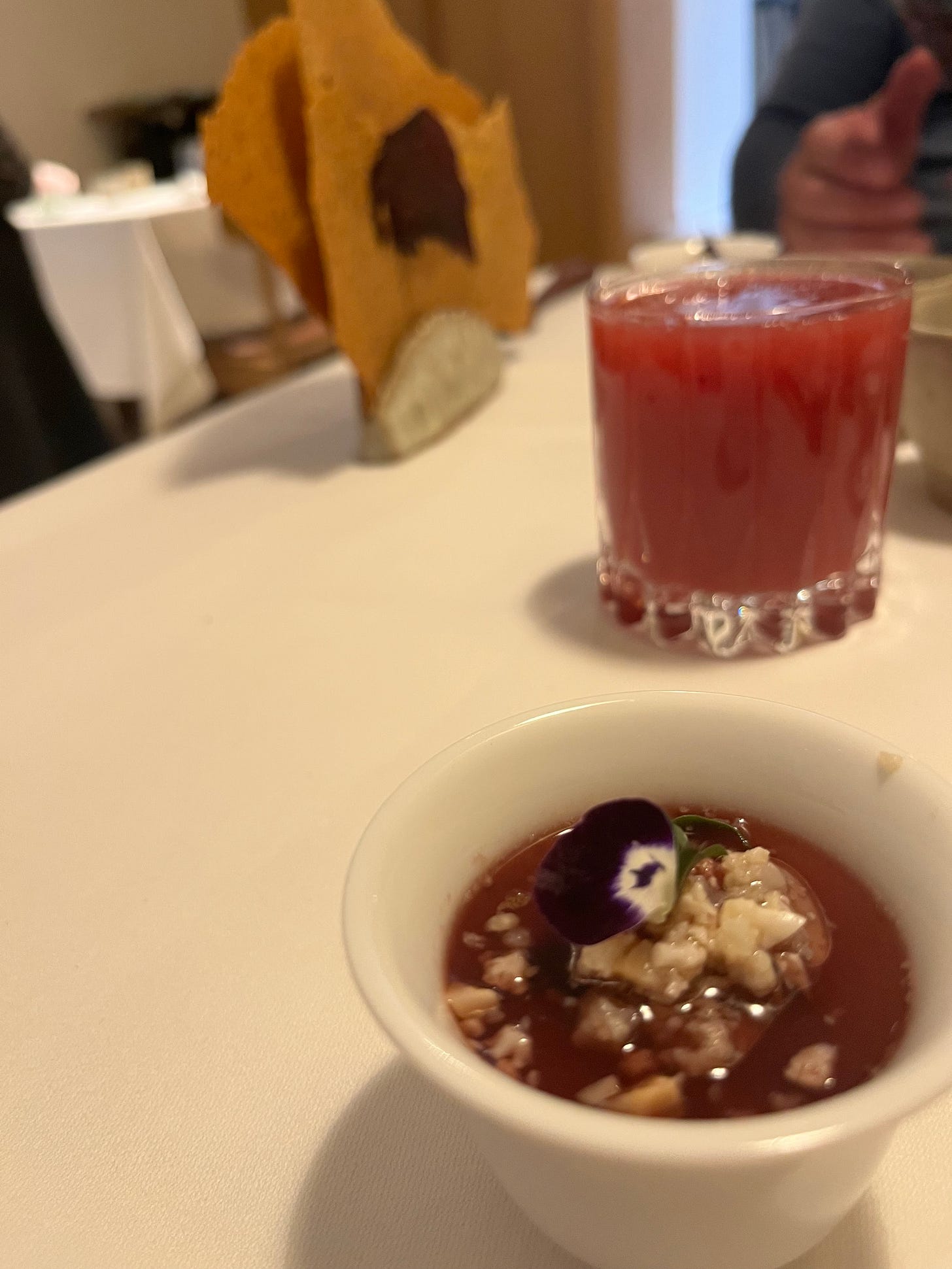Datil, Paris, France
Madame Cheffe Manon Fleury and her Team: a quest for elegance, sustainabiliy, and the inevitable beauty of working with seasonal ingredients and work ethics
According to my standards, as I laid out in my article on how to review restaurants, this is not a review. It is a chronicle, a tale, and has some points of review, but perhaps, it is simply an ode to a restaurant I felt vibing at the same tune as my soul.
Datil is a restaurant where there is a bubbly, fine-dining gastronomy beneath the apparent subdued Nordic looks. It comes straight from the immense change impulsed by Arpége to the French “minceur” cuisine, and it defines itself in an own, specific way against Nordic fermentations by leveraging seasonality and working within the boundaries of delicate creativity, collegiality, and respect for life as nourishment.
Cheffe Manon Fleury and her team said, “The producers provide the colours, materials, textures, and raw flavours. Alongside them, the Datil team is an extension of their work. Based on the work of two market gardeners from the Île-de-France region, Datil's cuisine is essentially plant-based. Animal protein is present, with particular care taken in its processing.
Reflecting on resource depletion and farming conditions, we aim to convey the animal's sensitive nature on the plate consciously—its texture, shell, skin, and carapace—all in their raw form. Our cuisine is aligned with what nature offers in a given season and the climatic conditions imposed upon it.
The connection is almost automatic. The dishes and ideas always begin during discussions with the producers. The stories they tell us and the visits to their farms constitute a large part of our cuisine. Then comes the intention, which often involves the desire to help people discover and appreciate lesser-known products, shed new light on them, make them delicious, and capture their inner joy. “
I immediately felt attracted by Fleury’s intentional cuisine, as she describes it. It seamlessly links producers and their products with consumers and their appetite—an appetite that has to be re-tuned seasonally and educated to lesser-known flavours.
We enjoyed a weekday lunch menu in five moments for 90 euros, with some kombucha and juice on the side. The restaurant offers an upgraded dinner menu for 150 euros, with the possibility of pairings. Datil is closed on weekends to respect the proper work-life balance of its staff: one Michelin star and a clear, sustainable mindset.
As you reach the restaurant, you are welcomed by a narrow but homely space in white, stone, and wood: Nordic inspiration for Parisian minimalism in actual space. There are two dining rooms and a beautiful stone-carved bar illuminating a middle, slightly smaller room.
The kitchen is at the restaurant's end, manifested and manifesting, and all the staff seem genuinely smiling and happy, enjoying the service and the moment. Cheffe Fleury shines in the background while her waiting staff on the floor move seamlessly between the open-space kitchen and the tables in a sort of artistic dance, reminding me of Steiners’ eurythmics.
The first course was a welcoming sip, a small cup of warm broth that is increasingly used and appreciated. I love to be welcomed by a soft, moist towel to rinse my hand, a sip of recomforting but ever-changing broth, as per Datil's tradition, and a smile as I sit down in the calm oasis, almost a gastronomic spa, a tranquil lunchtime restaurant that appears to be lifted from a small, bucolic environment, and instead is set amidst a buzzing city. It is like a dip in a pool, rinsing away all sorrows, preparing your mood, setting the scene, and introducing you - or me - to the meal to come.
And it gets even better when the second offering from the kitchen is a Chawanmushi, or as Datil calls it, flan vapeur—sweet and sour cabbage broth reduction for celebrating the end of cabbage season.






